
SEO for beginners or Search Engine Optimization for beginners, is a term that is now commonly searched in Google.
Why is that so? Well, many people are now diverting their interests from traditional marketing strategies to Digital Marketing.
But course just like a marathon, one has to begin at a starting point. It is important to understand the basics before diving in to a more complicated technique.
This is where SEO for beginners online articles will be very helpful.
Good thing, the internet offers abundant resources for SEO for beginners. There is approximately 2.5 million posts being published everyday for this topic! It means, in an average, there is 30 blog posts being published every second.
So why is SEO for beginners important?
First if you have a website for your business, you would want your website to to not only appear in Google search, but be captured in the first page of the search result.
This will increase the number of possible customers you may reach, which in turn would make your business profitable.
How to do that? Search Engine Optimization is the key.
Alright, the term search engine may not be new to you already. But optimization might be!
As mentioned earlier, it is important to understand first the fundamentals. Read further and take the jumpstart for your SEO for beginner journey.
SEO for Beginners Definition
According to Wikipedia, Search Engine Optimization is “the process of affecting the online visibility of a website or a web page in a web search engine’s unpaid results—often referred to as “natural”, “organic”, or “earned” results.”
To have a better grasp of what the definition means, here is translation it in layman’s term:
Search Engine Optimization (SEO) is a method of developing your online content, in order for a search engine (e.g Google or Bing) to show it in the top results for searches on a particular keyword.
Here’s a clearer picture-
In a SEO scenario, there are two characters- YOU, the SEARCHER, and the SEARCH ENGINE.
When a SEARCHER goes to a SEARCH ENGINE to look for online articles, it is 100% that the SEARCHER will enter a keyword or string of keywords to do the search. The SEARCH ENGINE will then pull-up different websites that are compiled in pages.
Most often than not, the SEARCHER will go to the first three or five websites that the SEARCH ENGINE listed.
Now have you ever wondered how some websites can be seen at the first page and some land from page 2 onwards? What possible strategy did these sites do in order to appear as top results?
At this point, we have to go further in discovering SEO for beginners or Search Engine Optimization for beginners.
Please feel free to click on any section that interest you the most:
- Overview
- Black Hat or White Hat
- Clean your house inside and outside – On-Page SEO and Off-Page SEO
- On-Page SEO
- Off-Page SEO
Overview
Why does SEO or Search Engine Optimization
tmatter and how does it look like?
As I mentioned earlier, almost all of our online experience begin with a search engine, and you know what? 75% of searches start searching on Google.
Add to the fact that the first five results on Google get 67% of all clicks, and you finally see the importance of search engine optimization.
You need to know how search works for you to understand how to show up first on the search engine results.
Search in Action
We already defined the basics of SEO. Let me show you the components in some detail.
Let me just share to you that Google secure the search algorithm and not all have access to it. Luckily, Backlinko made an awesome list and compiled it into one.
First things first, I want to be clear on these. We have two sides of the SEO force, and you will decide what to choose from.
Black Hat vs. White Hat
As a clear heads-up, I am doing everything in the long-term scheme instead of just making a quick money out of it.
We also have the same story in search engine optimization. Some people are using SEO to make a quick grand out of it while others are in it for a long run.
If you decided to work SEO like a get-rich-quick ponzi, you might be doing Black Hat SEO.
Black Hat SEO focuses content optimization only to the search engine, not bearing in mind human beings at all. There are many ways to break the ethical rule in SEO to make sites rank high, and these is the quickest way for black hat SEOs to make dollars fast.
Unfortunately, this strategy results in crappy, junky sites that really get banned quickly. It will result to punishment that a marketer will ruin everything they built making a website’s future grim.
You can implement and make thousand of dollars this way, but you always need to be on the lookout for search engine updates for new ways to break the rules.
On the other hand, White Hat SEO is the surefire way to create a sustainable online business. By using this method, you are focused on the human beings that is the real audience of your website.
An article from Bayt did an awesome way that explains the difference.
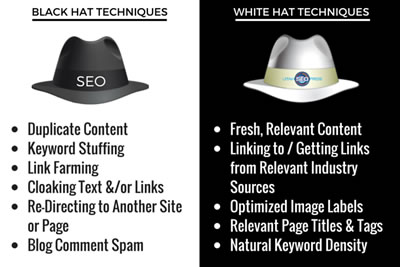
Clearing all of these, you will only hear and see White Hat SEO from me.
However, in reality, not everything is black or white.
The same thing with SEO. We have something in the middle of the “white vs. black hat debate” that needs to be talked about.
Gray Hat SEO, as it sounds, is little black and little white.
Funny that it is not as white as you can see neither is as scheming as black hat can be.
At some point, Google standards might contradict to good SEO standards or as I say unclear at all.
Let’s say for example, Google Issues a Warning About Guest Posting to Build Links.
But what Google on the other hand wants a guest post is to build awareness and education to a cause or brand.
The rules indeed are often amended, that is why SEO also changes all the time. That is the reason some of them are using
Gray Hat SEO still has the capability to enter because of these reasons.
Several classic link building methods, let us say for example using scholarship may also go either way. Some says it works. Some says it’s dead.
Law firms has several issues building high-quality links. That’s the reason they use scholarship link building strategies as well.

Industry known SEO Ross Hudgens, discussed about “Scalable Link Building”
Marketing strategies, oftentimes needs to be scalable to generate Return of Investment. This is also true with Facebook advertising.
As SEO expert Neil Patel also says: “Almost every ‘scalable link building tactic’ is borderline black hat depending on how you do it.”
Search Engine Ranking is not good as they should be at times. Even with new algorithm evolutions line RankBrain.
To showcase this dilemma, Glenn Alsop admitted doing Gray or Black Hat strategies like using their own private networks even-though Google is clearly against this tactics.
Glen indicated a sample search result for the keyword “Future of blogging“:

Glen’s site is ranking at the bottom, but indicated that:
- Has more links to the page than the competition.
- A higher domain authority than the competition.
- Glen’s site has the better on-page than the competition.
What is exactly the issue here? Any explanation regarding the example above?
Google and SEOs all agree that the above mentioned indicators are the most essential.
It just shows that someone can still manipulate the system, but the issue still exist.
Clean your house inside and outside – On-Page SEO and Off-Page SEO
We have two categories of SEO for beginners: On-Page SEO and Off-Page SEO.
On-page SEO is all about Google’s ranking factors that it determines by looking at the page being optimized, it includes your headlines, contents and page structures.
Off-page SEO is all the variables Google uses on how to look on your page. This is somewhat out of your control, and depends on other factors such as personal history of the searcher, social networks and similar blogs in your niche.
Both categories are different, but in order to do good in SEO Search Engine Optimization, you need to get both right.
To provide you a good example, let’s set a house as a description for the analogy.
Think of these two possible scenario:
Example #1: Your house is clean inside, but the front leading to the main door is messy.
What do you think will happen in this example? You are absolutely right! No one will want to enter your house even if you have the most shiniest floor and cleanliest house interior.

You will think that this scenario is the same if you will not optimize your page using On-Page SEO tactics.
You may have the greatest looking website and rich informational content but no one will credit your page or link to it.
Your beautiful website and content will never be seen because you will have no traffic going to it.
Let us see the other way around.
Example #2: You have the most shiny house front in the neighborhood leading to the main door, but messy inside.
It’s the other way around this time: Having a clean lawn will attract many people and visit your house: but your living room is a jungle, visitors will leave as quickly before you offering them anything.
Visitors who will visit your site viewing only one page will allow Google to give you a “bounce”.
Your Google page rank will be worse if you have a higher bounce rate (visitors who leave your site instantly).
That is the reason you need to apply on-page-SEO and off-page SEO.
You can work on a number of things for your on-page SEO and even more things outside (off-page SEO) to clean all things out.
Let us take a look at On-Page SEO.
On-Page SEO
We have three main categories for On-Page SEO. The most important first is content.
CONTENT
You might already heard the notion that “Content is King”. This prophecy was already mentioned by no less than Bill Gates in 1996, and holds true today.
Why?
Customers of the Google search engine is very happy when he/she finds the best result that serves them the best possible way.
When you Google “quick and delicious homemade spaghetti and meatballs”, Google will use all the energy into giving you what Google believes is the best recipe for homemade spaghetti and meatballs on the entire internet.
It doesn’t just give the best recipe, just the most delicious recipe, or give you a bunch of online shops offering frozen ingredients. It will use all the might to give you what you are actually looking for.
Google will always give you the best possible experience by directing you to the most related almost perferct content it can provide you.
That means that your number one goal is not just SEO but to provide and produce the greatest content.
Is that nuts? You indeed need to put all the effort for the goal.
SEO is a skill that is not different from other skills: Big effort will always fruit Great results.
Think of this; even if you have the best marketing system in the world but a really bad product, super tactical SEO will not help if you’re just creating trash content.
I will list the following factors of a great content in Google’s eyes:
Quality – It used to be that a great quality content is just what you need to stand out from the crowd. But that is not the case anymore. But it is very important to provide the user experience and a great content is the starting point of any SEO effort [any online business for that case as well].
Creating a good content is not easy. It means that you have to be a good teacher and a good source of information from your chosen field.
But, there are ways to start. You can begin by piggybacking off from content that others have already created and make them much better, in-depth, and more longer.
If you already have your own idea, that is brilliant! All you have to do is think for a while and come up with an excellent compelling headline.
When you start writing that content, make sure to include all the important aspects of great content in your article.
When new to content creation, make it a hobby to make writing a daily habit, and use a professional approach to create one.
Keyword Research – Making sure to do keyword research upfront is crucial for a great content.
The idea is to choose your keyword before starting your article, because you need to include your targeted keyword in your blog post’ headline and all throughout your article.
If you are new to keyword research, you might want to take a look at HubSpot’s guide for beginners.
Of all the On-Page SEO factors, this is the one that you need to burn more time learning. Don’t buy a book for this! Backlinko’s definitive guide to keyword research will do.
When we say you don’t sleep on this, it is critical.
I recommend the following FREE E-Books on Keyword research to help SEO beginners like you:
1. Learning SEO from the Experts – When it comes to educating the masses on digital marketing, HubSpot never really fails to do it. This guide will provide the basics, insights on keyword research for any marketer.
2. Search Engine Optimization for beginners – This is a one-stop masterclass for all things SEO and keywords. You will not be able to put this E-Book down for the topic.
Use of keywords – Google becomes smarter over the years. While you indeed need to put your keyword throughout your content, squeezing your keyword into the text too much will hurt your rankings.
Keyword jamming is a definite no-go nowadays.
The use of keywords for today’s age is all about semantics. Google is so smart at translating the meaning of keyword searchers’ that is weird.
The search engine will not only look on your keyword but also synonyms to interpret what you really mean when you type something like “mcdo manila”.
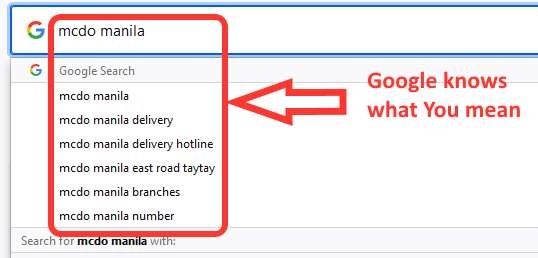
Google will know that you are not looking for mcdo but McDonalds. It will also provide you possible delivery options, locations and telephone numbers.
You just need to make sure that your keyword is in strategically important places (headlines, URL and meta description), you don’t need to mention it multiple times in your article.
Always focus on the reader’s user experience and smoothly integrate those keywords a few number of times.
Freshness of content – A recent benchmark was done by HubSpot, that presents, once again that posting frequently really improves Google rankings.
But don’t be fooled. Posting a new content is just one way to provide Google the fresh look in your site. There are a ways of things you can do with content that you’ve already posted to make it all up-to-date.
An example is Brian Dean of Backlinko. He has only published approximately 30 posts in two years. But he always keeps his published posts up-to-date by re-writing them and updating them and adding new ideas as he finds it.
You now see that publishing regularly is important, buy you can still get great results by posting once a month as long as your content is in-depth and thorough.
Direct answers – Lastly, Google will provide searches with direct answers on the spot in the SERP. When you write your content clearly that Google will recognize it as an answer to a direct question, Google will show it directly below the search bar.
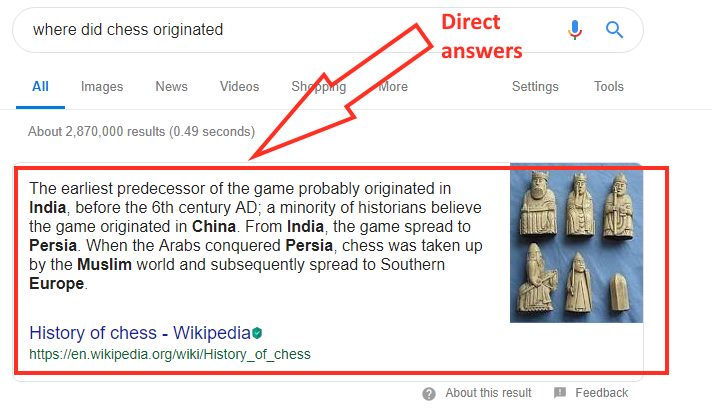
A former head of Google’s spam team even indicated that writers who are are cutting and explaining the jargon will be on the right track.
That’s the reason you will see more detailed how to’s in articles nowadays.
Technical jargon and complex sentences will never help you look smart or help your SEO strategy.
You might need to keep in mind critical aspects provided by Moz to help you with direct answers.
KEYWORD SELECTION
This is a big topic that needs a separate section to help SEO for beginners.
Approximately 80% of SEO is all around keyword selection.
It is an exaggeration for that stat, but you might get the point.
The right keyword selection will direct each content you create.
Keyword selection will direct even your link builds, and other SEO Search Engine Optimization tactics you will apply.
Most marketers and blog owners has one common mistake, including myself.
We tend to stop on keyword research. Sometimes we do it for a week and then we stop.
This is happening, especially if someone is redesigning a website.
In reality, SEO for beginners or Search Engine Optimization should be doing keyword research in a consistent basis.
We should continuously check if our keywords still make sense on our existing content.
I will list some bad keyword decisions we might miss.
Keyword research mistake #1: Selecting the wrong keyword.
You are in the consulting services and offers a $5,000 course per year.
That’s roughly 500 grand per month. But that is still expensive for the majority.
You are ranking #1 for “free business expansion tips”, now what kind of audience you will have?
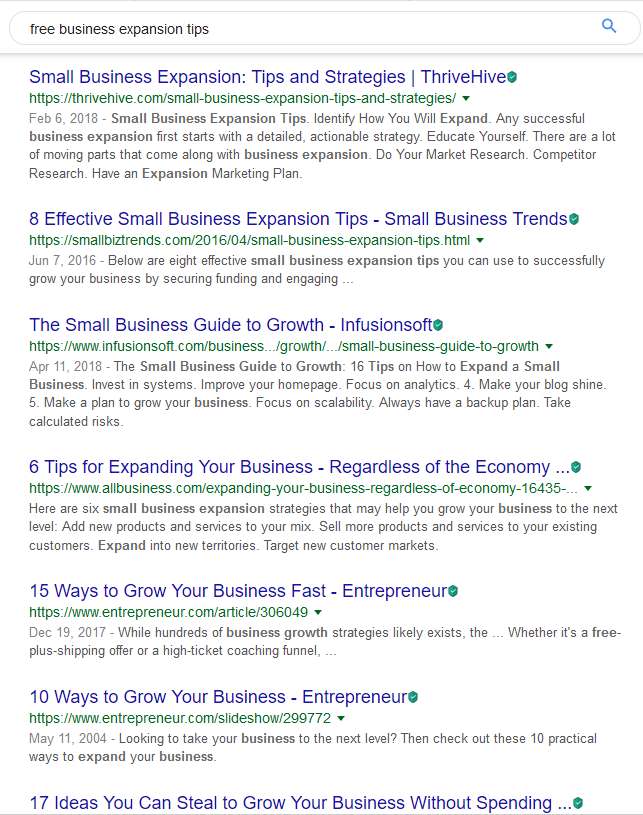
You’ll have people or traffic coming in looking for free tips! It means they will not pay anything using their credit cards once they are in your site.
Keyword research mistake #2: Missing out the competition
So in a bright day you’ve selected a good keyword.
The keyword is connected to what you want to do and your goals.
So, the first thing you do is open a good keyword research tool.
Keyword tool like the free Google Keyword Planner or the paid SEMRush.
You type in the keyword and got the results.
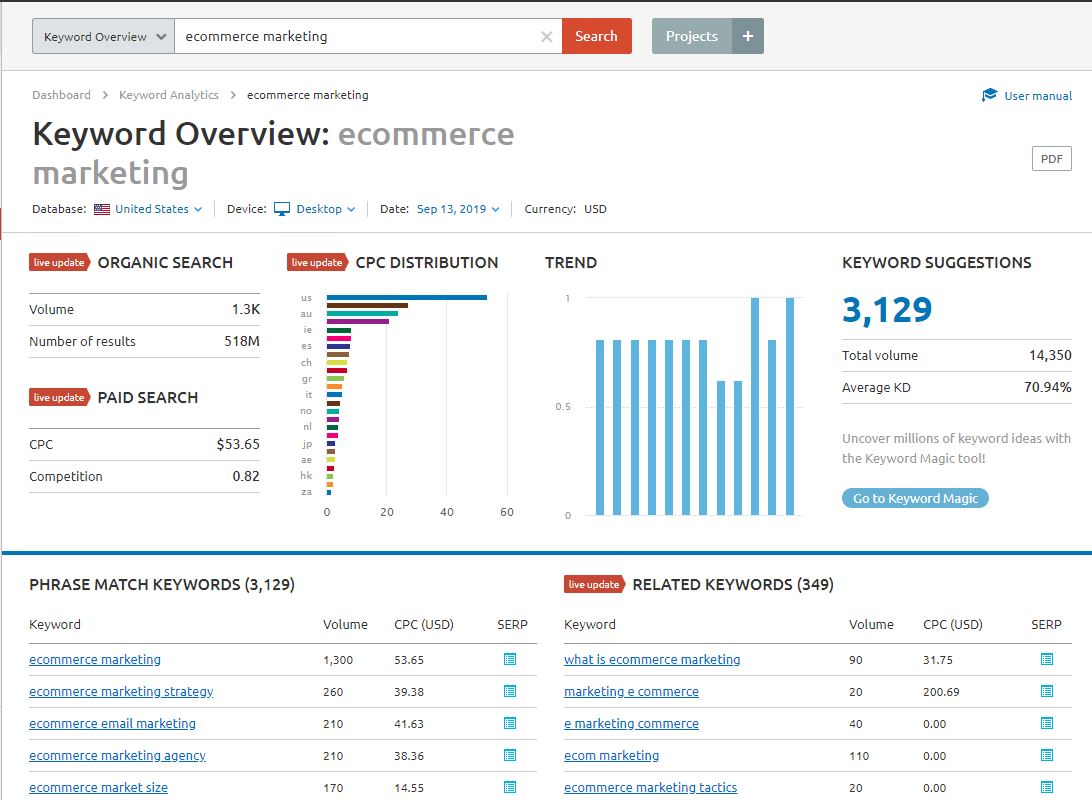
When you see the results, you are trying to check for the volume of the searches for that keyword.
Buy, you might be missing out on the competition.
You and I should remember that the keyword we are trying to rank will also depend on the competition we have for that keyword.
So what do you do then?
If you are trying to compete for those sites that are already years old, and has high SERP rating.
You need to find a keyword that are:
- Really relevant for your business
- Less competition
- Will provide enough traffic for the time/effort to be applied.
Keyword Research Tips #1: Get the focus intent
Most marketers focus on the keyword.
We must act differently, we need to understand the INTENT.
Instead of trying to look for keywords that are being typed in, you need to look for why and what are people are trying to look for.
HTML
Many marketers know that the way for SEO is to start a WordPress blog or website.
You need to create articles that are focused on your goals and niche market.
But the best avenue for article marketing is to create “evergreen content”.
Evergreen content is a content that is relevant in any particular season all year round.
If you are to start an online business on a website, we need to learn at least basic HTML concepts.
There are places to learn HTML for free, thanks to Codeacademy and Khan academy.
There are 4 parts of HTML that you should start to optimize on your website for every content that you have:
Title Tags – Think of it as your headline.
The HTML tag for this is called title. When using in a blog article, it becomes the H1-tag, which means Heading of the first order.
Every article should have at least 1 H1-tag to make it easier for Google and search engines .
Meta Description – The meta description is the excerpt shown when Google displays your page to online searchers.
It is quite easy to check if a page have done the homework doing the meta description.

Google will never cutoff and end “…” or looks like it ends in a mid-sentence, if you optimize the meta description for a page or article.
A good practice for meta description is to add the keyword upfront.
Make sure that it is within 160 character long, and of course, bear in mind what the searcher will see and not just the search engine.
My favorite tool to edit both of these is to use a tool called Yoast SEO WordPress Plugin.
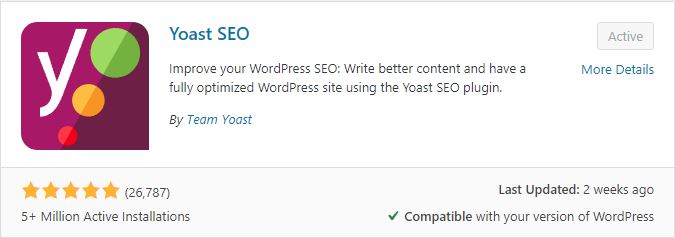
I use it on almost all of my website, in my opinion the best SEO for beginners plugin for WordPress.
It is updated almost weekly and comes with a lot of time saving features.
It will help you edit your title and meta data, additionally it will help you:
- Help to setup your meta data for almost all social networks: for Facebook, Twitter etc. properly format your image and rich data.
- Create and update your XML sitemap as your website continuously evolves.
- Easily integrate Google Webmaster tools such as the Search Console for you to be able to troubleshoot quickly issues on your website.
- Many more!
You can easily customize each post automatically to save time, you can set your default settings for your title and metadata.
There are other extra features. My favorite is the Readability and Keyword analysis tools that help give simple benchmarks.
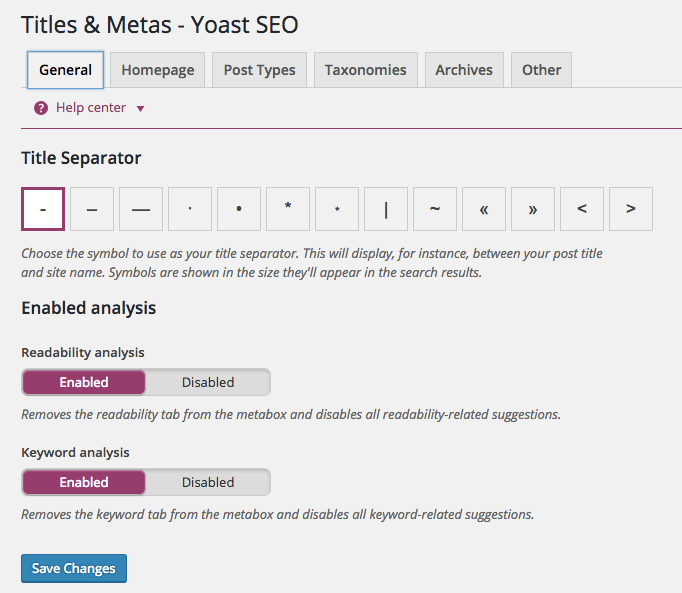
It will assist you in clearly selecting a featured image and setting up the title and meta description.
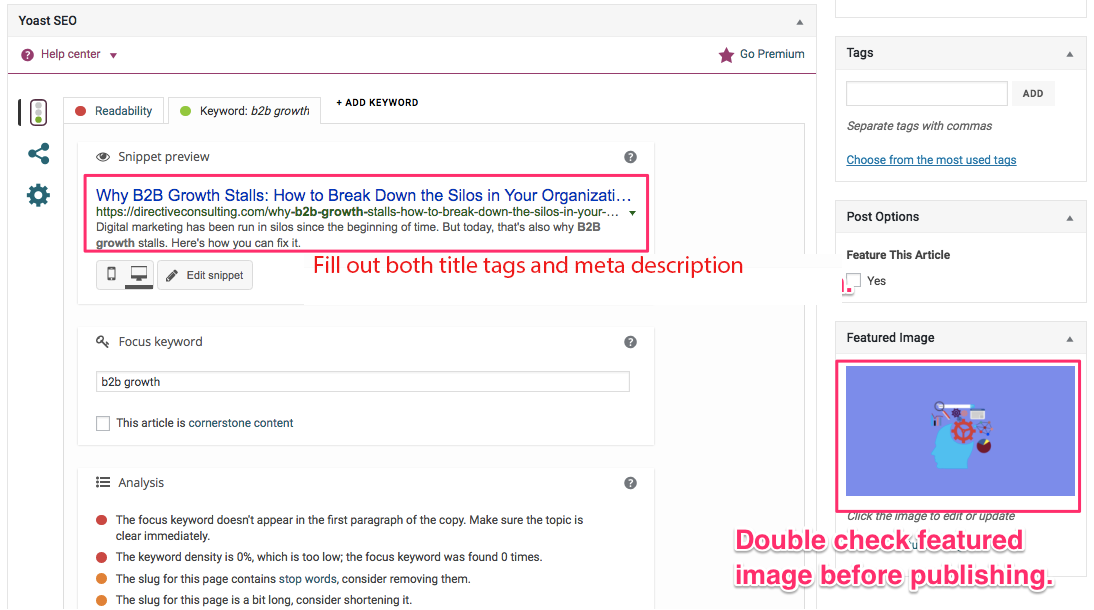
Schema – schema is a subset of some specific HTML tags that will improve the way search engines display your content.
Search engines like Google read the contents of your web pages, but have a harder time checking what it means and how data is connected to other information.
Schema is created by Google, Bing and Yahoo.
It is just a standard language that allows search engines to better retrieve data from web pages.
Why is it that Schema is important?
Well the following are some of the advantages of implementing Schema in your web pages:
- Increased Click Through Rate
- Increased organic traffic
- More consistent branding
- Business intelligence

